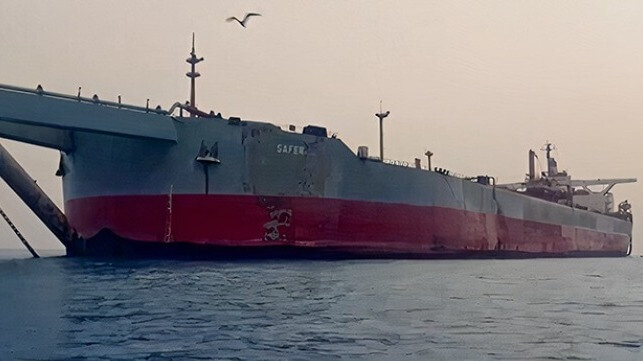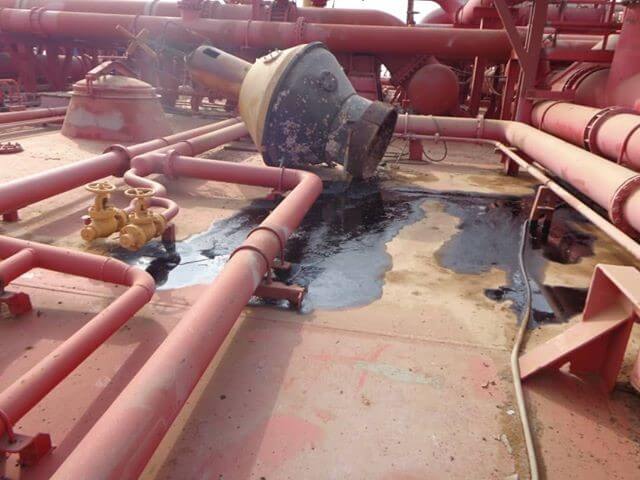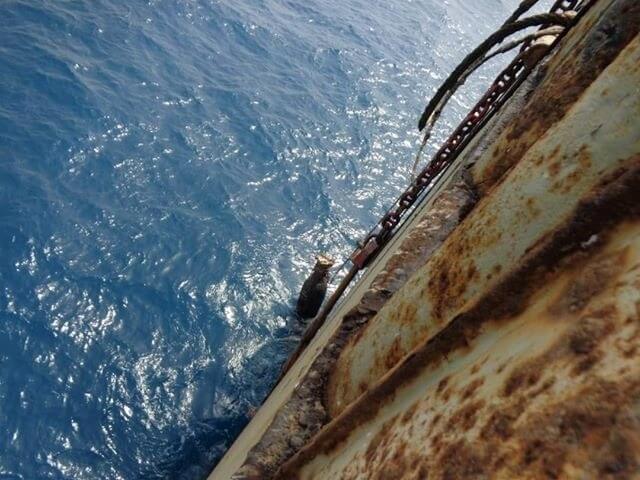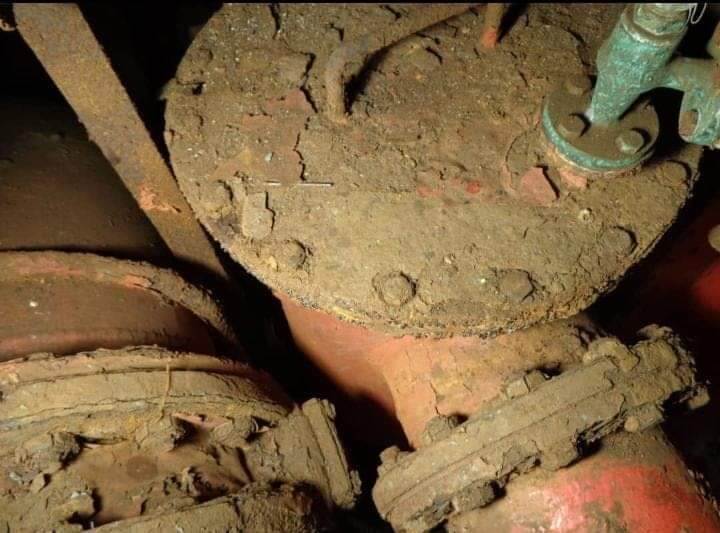If You Think the Ever Given Was Bad, Wait Until You See the Safer

The Ever Given blocked the Suez Canal for six days in March 2021, causing shortages of critical supplies in different parts of the world and sending global trade into a frenzy. The cost to the shipping industry for that one vessel being stuck for less than a week was an estimated $416 million per hour. That will be nothing compared to the disruption to the global economy if the FSO Safer spills its cargo.
Floating in the Red Sea, attached to an oil pipeline that runs nearly 300 miles to the war-torn city of Marib, the FSO Safer was established as a Yemeni oil export facility in 1988. The massive converted tanker was due to be decommissioned and replaced by a land-based terminal when the Yemen civil conflict erupted nearly eight years ago. Owned by SEPOC, a company which itself is owned by the Government of Yemen, the Safer sits off the coast of Ras Isa, an area controlled by Houthi rebels.
The vessel is still loaded with 1.14 million barrels of oil. While roughly 15,000 barrels have evaporated over the last eight years, and a thin layer has polymerized, the majority of that cargo remains liquid and liable to spill. The portion of the pipeline that runs for five miles beneath the Red Sea has an additional 17,000 barrels of liquid crude in it. Without intervention, the Safer will either explode or corrode and spill its contents - and likely take the pipeline with it.

Deck of the FSO Safer, indicating the lack of basic maintenance (2019)

Deterioration on the single hull of the Safer (2019)

Corrosion on the control piping system (2019)
For context, the amount of oil spilled off Mauritius (which destroyed an entire marine protected area) was 8,450 barrels. This is less than one percent of what is at stake with the Safer, and less than half of what is in the subsea pipeline. And while the Ever Given disrupted trade through the Suez Canal for six days, some projections suggest the Safer's spill could slow or stop trade through the entire Red Sea for weeks or even months, forcing ships to divert around the Cape of Good Hope to avoid spreading the oil by sailing through it.
The combined risks of a massive explosion, the blockage of international commerce, and a devastating oil spill form only part of the concern with the FSO Safer. Add in the deaths of millions of people (already in famine) from loss of drinking water, caused by the contamination of desalination plants, and limited access to food caused by the blocking of Hodeida, and we will have a humanitarian emergency at a level the world cannot currently sustain.
Furthermore, with the annihilation of the world’s most temperature-resistant coral system along with 10 unique species of fish, and the long-term damage to economic activities like fishing and tourism, the effects of this one vessel’s demise would be felt for generations. The potential consequences dwarf the various other maritime disasters experienced in the last few years.
In 2022, the UN made progress on an agreement with the Houthis where, in exchange for not interfering in the operation, the UN would charter a VLCC, transfer the oil from the Safer to the seaworthy vessel and leave the vessel at sea where the Safer is now, under Houthi control. The UN raised nearly $80 million through a lengthy campaign, but before starting the operation, the price of a charter for a VLCC has gone up, the price of oil has gone down and, while not directly interfering, the Houthis have made a habit of attacking tankers in Yemen with drone strikes.
At this point, the most expeditious and likely effective approach – especially in light of concerns around underwater mines in the vicinity – would be for the UN Security Council to recognize that, for the peace and security of the world, it needs to take action. Given the current state of affairs, however, such a decision is highly unlikely.
As such, the UN team needs to revisit all the options for getting the oil off the water, including supporting the completion of the land based facility in Ras Isa that was supposed to replace the Safer in 2015. And competent parties with an interest in preventing the spill, including the shipping industry, need to add their voice and expertise into the mix to ensure that international commerce is not disrupted.
The world has not been terribly stable the last few years, and maintaining the Safer's oil on the water – even in a seaworthy vessel – is no longer a wise plan. There is too much at stake, and the UN needs to regroup and redirect its efforts before the window of options closes further. At the same time, different industries, particularly the shipping industry, need to speak up to try to encourage viable solutions that will ensure the Red Sea does not become impassable.
The blockage of the Suez Canal in 2021 was bad; we cannot afford to wait to see how much worse a spill from the Safer would be.
Dr. Ian Ralby is CEO of I.R. Consilium and a leading expert on maritime law and security issues around the world. He and his team have provided some of the most extensive reporting on the FSO SAFER over the last 3 years.
Sir Alan Duncan spent 27 years as a Member of the British Parliament and is former UK Deputy Foreign Minister and Special Envoy on Yemen.
If interested in providing support – either discreet or overt – to this effort to prevent a catastrophe from the FSO SAFER, please feel free to contact Dr. Ralby at [email protected].
The opinions expressed herein are the author's and not necessarily those of The Maritime Executive.
